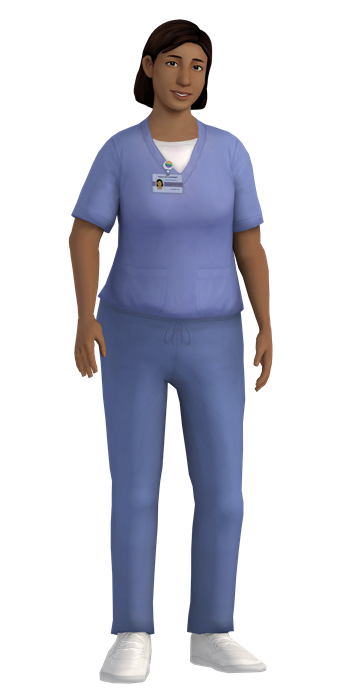How Practicing With Virtual Humans Changes Health Behaviors
EVIDENCE-BASED STUDIES SHOW THE REASONS BEHIND SIMULATIONS' EFFECTIVENESS
It's a fact. Simulation role-play gives nursing students an edge when it comes to real-life clinical situations.
Authors of the paper, “Harnessing the power of conversations with virtual humans to change health behaviors” (published on the National Center for Biotechnology Information, U.S. National Library of Medicine, mHealth site) describe how the behavior-change model drives these types of simulations. In what way, specifically? By drawing upon components of game mechanics and virtual human simulation technology.
 The simulations also integrate evidence-based instructional-design components and principles of social-cognitive theory and neuroscience. These components include:
The simulations also integrate evidence-based instructional-design components and principles of social-cognitive theory and neuroscience. These components include:
- motivational interviewing
- emotional regulation
- empathy
- mindfulness.
The advantages to students are endless. For example, when nursing students enter an ATI simulation platform, they enter a risk-free practice environment. In this virtual world, they can engage in conversations with intelligent, fully animated, and emotionally responsive virtual characters that model human behavior.
During these practice conversations — and with helpful feedback from a virtual coach — students learn to more productively lead conversations in real life.
Numerous longitudinal studies have shown that users who complete these types of simulations demonstrate statistically significant and sustained increases in attitudinal variables. These variables are important, because they predict behavior change, including preparedness, likelihood, and self-efficacy to better manage conversations.
Simulations also have demonstrated a capability to address major health concerns where effective conversations are necessary to bring about changes in attitudes and behaviors. Such conversations are especially important when it comes to public health concerns, a timely topic during a period such as the pandemic when misinformation has led many people to misconstrue the truth, By practicing challenging conversations such as these, nursing students will be much better prepared to effect change as new nurses.
